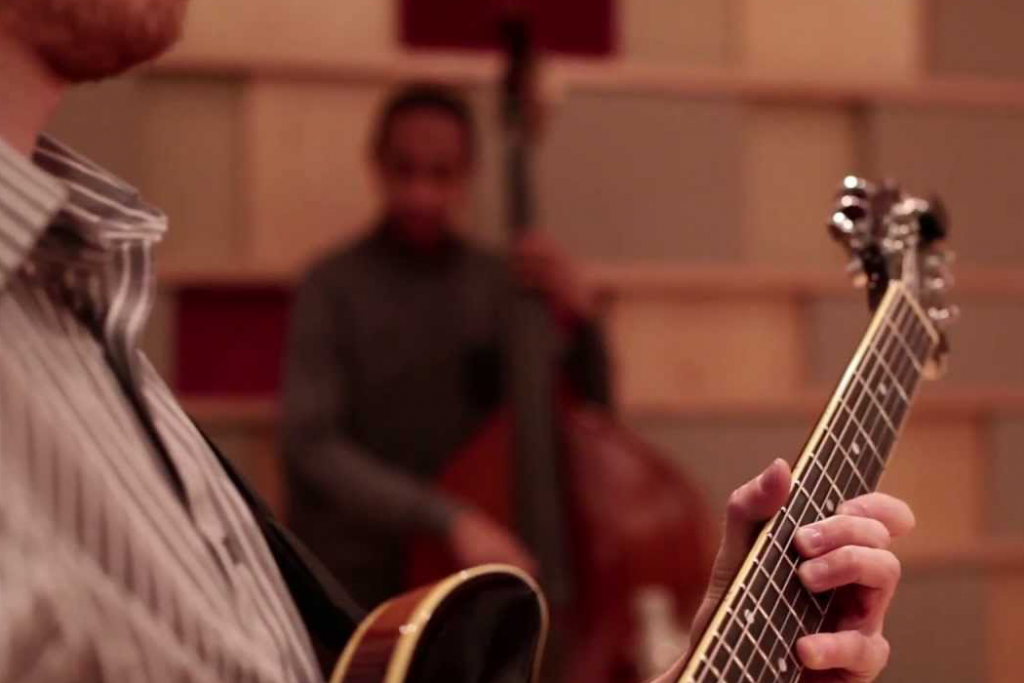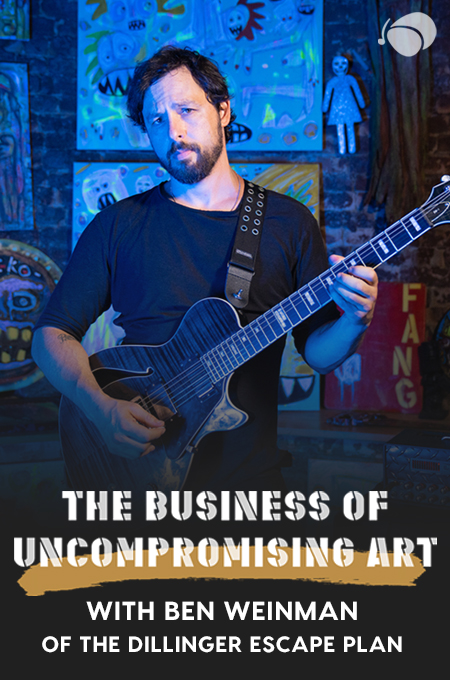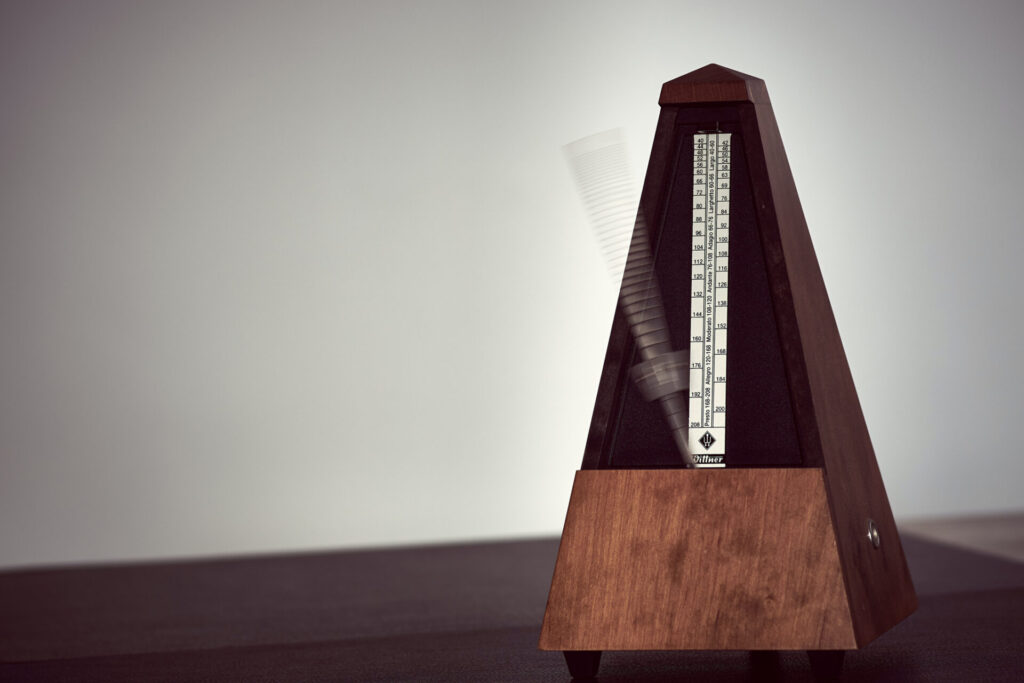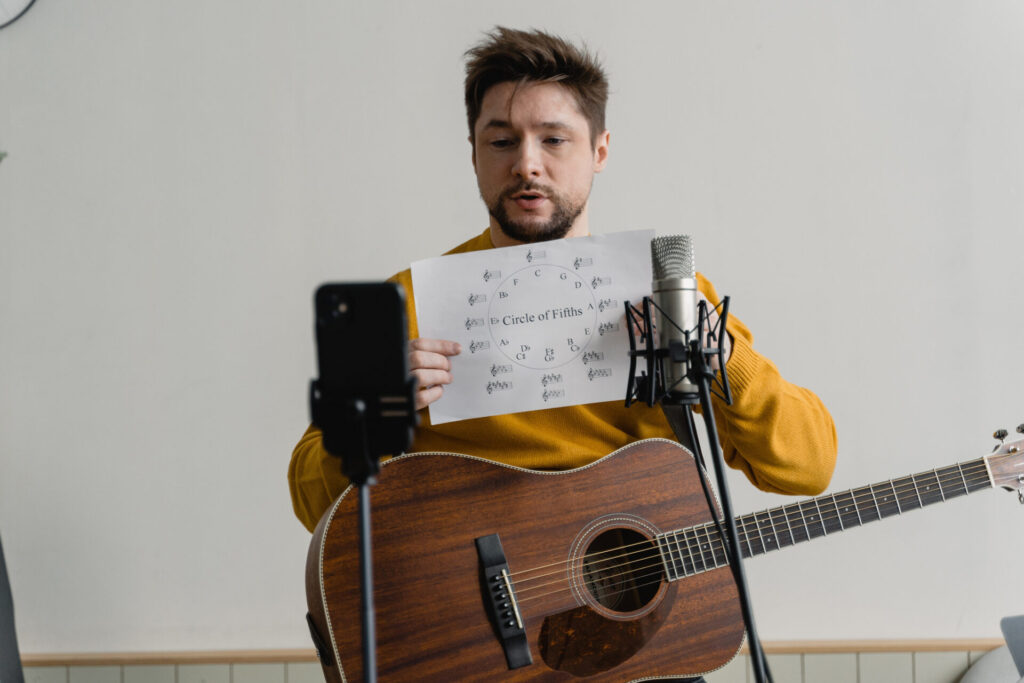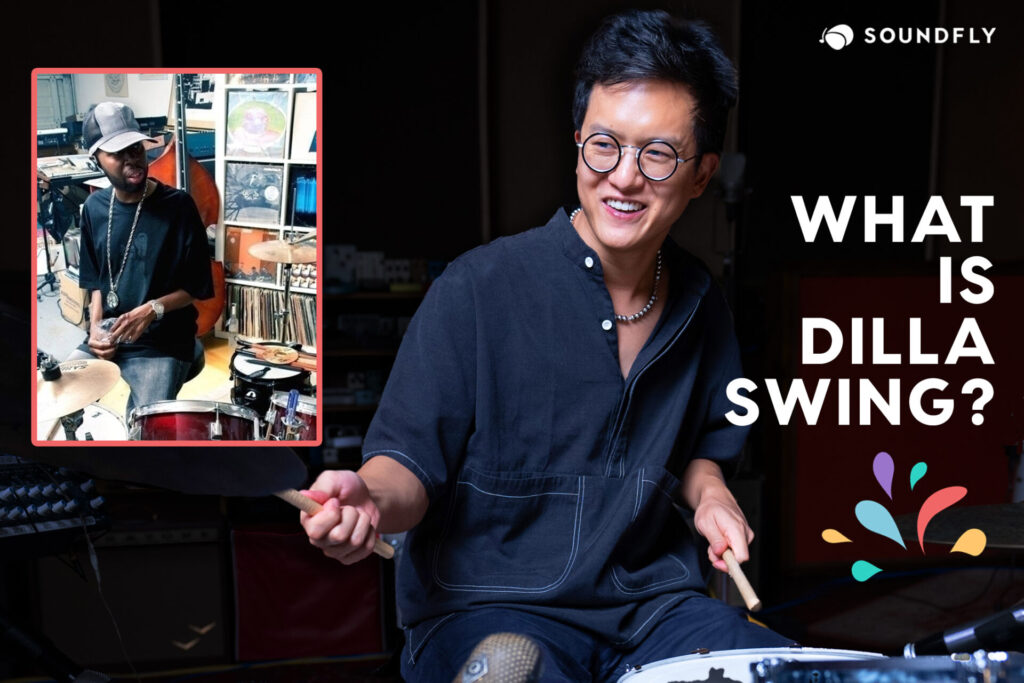Welcome to the second installment of How Successful Musicians Practice. If you’re just joining us now, take a minute to peruse the practice regimes of some seriously successful percussionists here. To recap, I see there being four kinds of practice goals a musician works towards over the course of their career: practicing to learn an instrument and gain technical facility; practicing to learn a repertoire and harmonic, melodic, or rhythmic concepts; practicing to be a professional, i.e. “gig chops”; and practicing to maintain proficiency.
The first is a prerequisite to playing music, but it’s often where musicians stop; and that’s one thing that can separate the successful musicians from amateurs. That said, there are many paths an artist can take to reach their practice goals, and that’s why I’m interviewing some of my favorite, internationally touring musicians to find out about their routines, rituals, and what their personal practice philosophies (PPPs) are. I hope these interviews can serve as a reference and a source of inspiration for aspiring and career musicians.
With that, meet some of my favorite string instrument players, and learn a bit more about how successful musicians practice!
Ben Eunson (Guitar)
Ben performs with Terri Lynn Carrington, Patrice Rushen, David Weiss, and Lizz Wright.
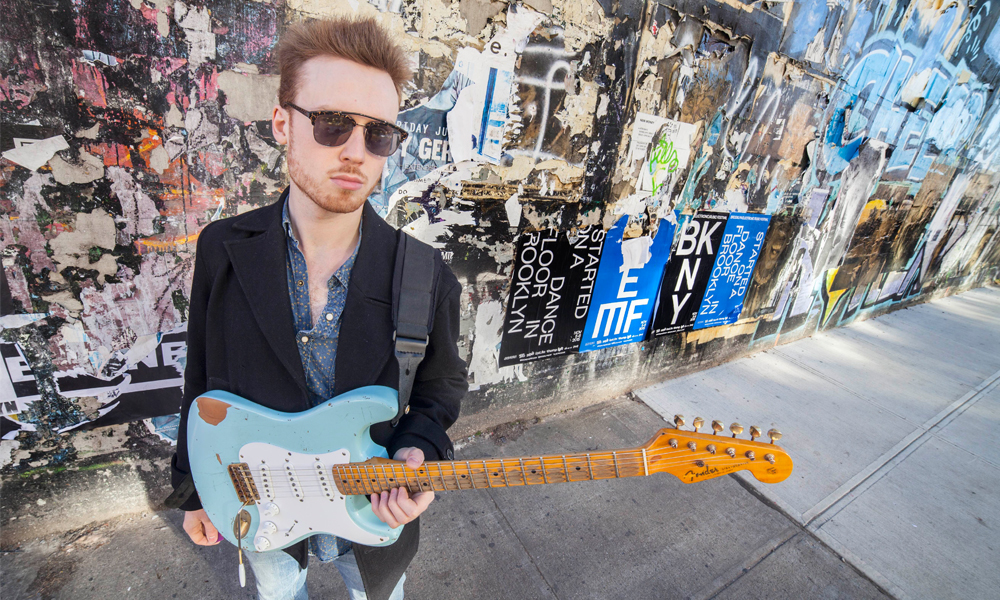
On a good day, I practice for 7 hours. On a bad day, I only get 4 hours in. But it usually averages out to around 6 hours a day, 6 out of 7 days a week. On Sundays, I take a break and only do 1 hour of maintenance practice. So that comes out to about 37 hours practice a week, and about 26 days of serious practice in a month. I practice in my apartment, or in a hotel room if I’m traveling.
I usually start the day with a warmup centering around various scales and arpeggios that I use regularly while improvising. I find it helpful to do maintenance practice on these basic materials every day. After warming up, I construct a practice routine based on the areas that I feel need serious attention in my playing. I usually stick with the same routine for several weeks (sometimes months), until I feel that I’ve reached my natural point of saturation covering those areas.
I typically practice in intervals of 2 hours at a time. After 2 hours, I take a short break, and then start another 2-hour interval. I continue this pattern throughout the day. I usually get coffee before I start practicing, and I prefer to start practicing in the morning. I start every practice day with deep breathing to make sure that I’m centered and in the right frame of mind to concentrate and do productive work.
My biggest challenge is fitting practice in around all of my other obligations throughout the day — mostly rehearsals and gigs, but also the everyday tasks/errands that we all have to manage. The only method that has ever worked for me in balancing everything is trying to make sure that every free moment in the day is used wisely for work purposes. Some days I manage this better than others, but I really try to keep distractions (like unnecessary social media usage) to a minimum. That’s not to suggest that all social media usage is unnecessary — I do factor in time for managing and working on my own social media presence every day. I just know that for me, some aspects of it can unnecessarily take up a lot of time if I’m not careful.
When I was younger, I would try to copy a lot of guitarists so that I could sound like them. Probably the biggest breakthrough that occurred for me happened as a result of being both in the practice room and on the bandstand. It was the moment I started to recognize that my own style of playing was emerging. No longer did I need to overtly take things from other guitarists — the ideas and concepts that occurred naturally to me were starting to take shape. It’s hard to describe exactly how it happened, but it was (and continues to be) my biggest breakthrough.
+ Read more on Flypaper: “7 Ways to Practice While on the Road”
My PPP
For me, my personal philosophy is that the instrument must be in my hands (for many hours a day) in order for the practice to be constructive. I think some elements of mental practice are very helpful — I’m usually thinking over certain concepts most of the day while I’m away from the guitar. However, I think that if you really want to work on playing an instrument, then you need to be physically playing it very frequently. Though, I also think it’s important to acknowledge that everyone has their own process, and I always keep an open mind to different approaches.
+ From the archives: “10 Tips for Making Your Sheet Music More Readable”
Celia Hatton (Viola)
Celia plays with Stevie Wonder, Justin Timberlake, Shattered Glass, and Yuna
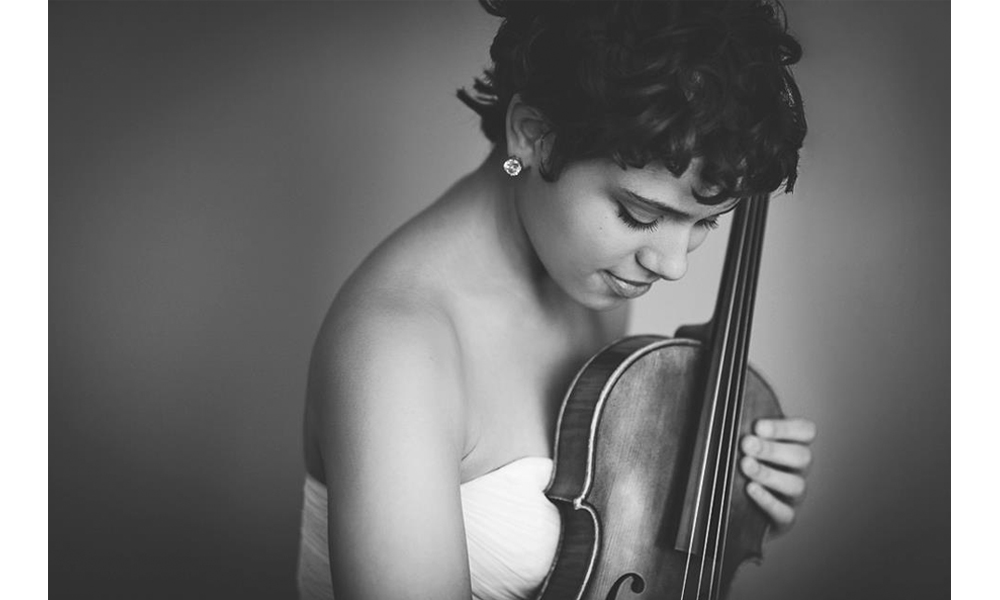
My practice varies depending on what deadlines I have. I work really well under time pressure. If I have 3 days to nail a program, I’ll spend up to seven hours a day in the practice room. If I have advance warning, I spread it out, so maybe 3 hours of honest work. When I have a lot of time, I lack urgency so I have to fight my own concentration on a daily basis. I’ve made it a priority to improve my long-term preparation so I don’t have to scramble at the end. But a part of me likes the scramble!
I practice in my bedroom. I’d love to have an apartment some day with a dedicated music room, but for now, my music stand is set up between my bed and desk. There’s a bunch of lamps and pencils scattered everywhere.
I like to have a warmup to my warmup. My warmup warmup is getting my ears in the game by playing recordings of artists I admire. That pulls my attention away from my daily to-do list and into the sound world. There’s no exact time frame for it. I keep listening until my ears are full and the urge to work flares up. Then I’ll move on to a physical warmup that involves playing scales, arpeggios, and études for about 45 minutes. After the blood is flowing and my hands are reacquainted with the fingerboard and bow, then I’ll move on to repertoire I need to prepare for my next upcoming concert.
I always make my bed before I practice. My bed is the largest object in my room, so if it’s a hot mess, my brain feels like a hot mess, too. If my bed is made, I feel like I can breathe and concentrate… My iPhone in the same room is my worst enemy! My practice breaks can broaden because I get lost surfing Instagram. It’s bad. I have to snap myself back into reality. Keeping my phone on silent on the opposite side of the room helps.
If I have a fast approaching deadline, I’ll get so engrossed in what I’m doing that I have no idea how long I’ve gone. By the time I reach my breaking point, I need a really long break. Too long for my liking. I love to be outside, so I’ll often go for a walk in the neighborhood… but then keep going and end up exploring the city for the rest of the day. I’ve had to learn to practice, take a 1/2 mile loop around the neighborhood, and come BACK to practice. Fresh air has become my reward for concentrating for long periods.
I can’t point to any specific breakthroughs that I’ve reach through practicing lately, but my life is so irregular that when I’m able to maintain some version of practice consistency, I’m always surprised to realize and remember that it works! My biggest breakthroughs are realizing that all the time invested does add up day to day.
My PPP
I can do anything if I practice (the right way, consistently).
Steve Bilodeau (Guitar, Production)
Steve is a Montreux Jazz Guitar Competition 2016 Finalist.
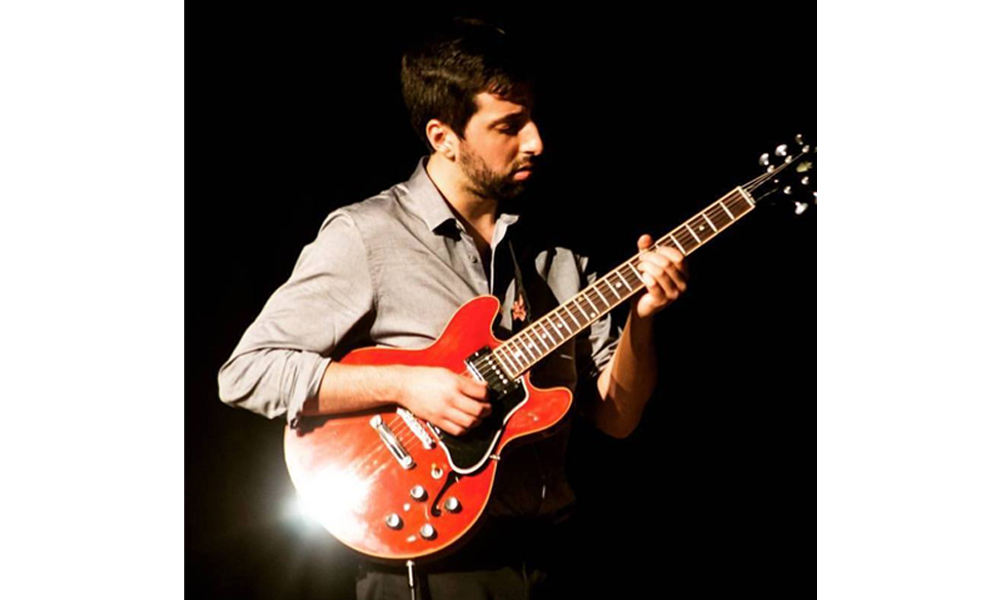
I practice around an hour a day, but that doesn’t include time spent playing sessions, lessons, gigs, etc. I try to fit in practice wherever I can, sometimes at home and sometimes at my school in between lessons. As far as my practice sessions are concerned, I don’t plan beforehand. I like to keep it spontaneous and fresh. To me, the most important thing is to enjoy it, and if I get too rigid, I start feeling like it’s a chore. I like to enjoy a bit of coffee with my practice.
My schedule changes a lot, sometimes not practicing is the best thing for me. More doesn’t always mean better. Sometimes practicing too much can make people focus more on technique than on making music.
My best breakthroughs have all been totally by chance when I was just messing around and not trying to do anything. I would discover an idea and write with it or it would point me towards something new, something nobody taught me, something that I discovered on my own. I feel like this is the key for me to develop my voice. Just follow the discoveries and let them come, stay creative.
+ Read more on Flypaper: “This Psychologist Wants You to Stop Wasting Your Practice Time”
My PPP
It has changed a lot over the year but now I just care about making music. I don’t bother practicing things that aren’t going to help me make better music. That’s the goal right? I don’t want to get caught up doing a bunch of technical things I’m never going to use. It’s important to me to always focus on the ART. This isn’t a sport.
Parker McAllister (Bass)
Parker performs with Sweet Honey in the Rock, Hypnotic Brass Ensemble, and The Love Experiment.
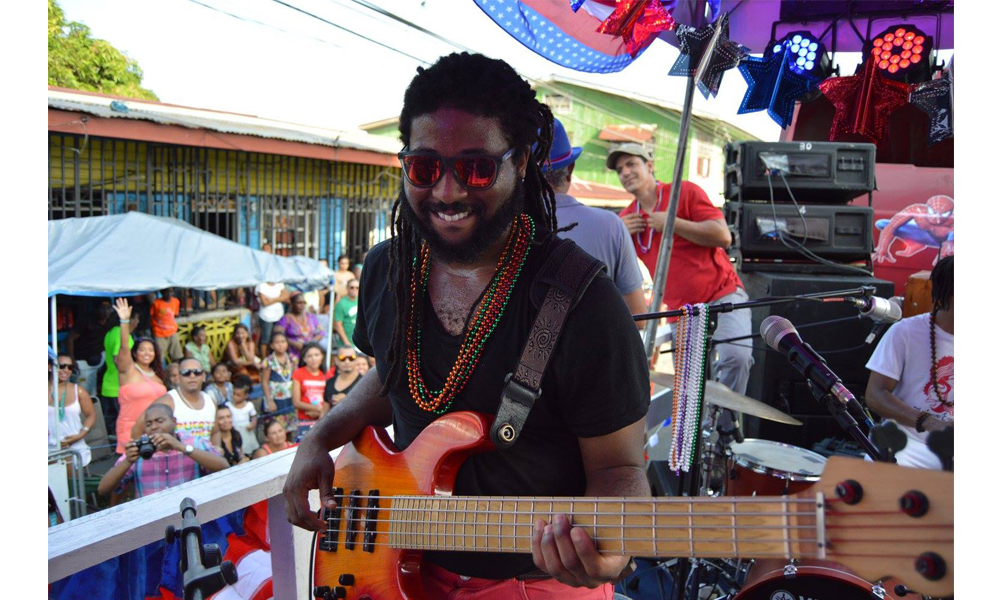
On average, I put in 4 days a week of actually playing bass for practicing, in addition to time spent learning new material for gigs. I practice mostly at home and occasionally in my studio, if time doesn’t permit me to get home. But I always prefer to be at home in my space.
I try to get in everything. Technique is a big thing for me, so I will always put in time on scales, arpeggios, mutations, and patterns of such. From there, it’s pretty much a priority thing. Because I have so much music to learn, I usually go straight to new material, and organize that from hardest to easiest.
In an ideal world, when I have to the time to put in how I’d like, the breakdown goes (loosely) as follows:
- Technique: Since I’m a stickler for this, I’ll spend a lot of time here. Sometimes it can be all I get to if I’m not happy with my technique. I never teach students this way because I believe in being well rounded. But once you develop a certain level of understanding of music, some things shift to mental practice and keeping up your “chops” is vital.
- Theory: I really enjoy the theory behind music and its applications in actual functional and accessible music. It’s great to understand it in a jazz context. But I find that to be the easier context. Jazz as a genre may be more difficult, but often the changes are written out, and the answers are either in the chord changes or the melody. In pop or less challenging music, there are just triads and a few 7th chords. To hear the complex harmonies within the confinements it’s much more challenging and appealing. So often what I will do is take an easy song I already know and try to apply a new theory to that music. Sometimes it works, most of the time it doesn’t.
- New Music: This ranges from learning new music, to solos, and excerpts. Priority is music for upcoming gigs. But if I have time to do what I want, I learn music that I either really like, or learn music because there is information in it that I want to add to my own arsenal. This is usually jazz songs, since they have so much technical information in them, from melodies, to solos, and even practicing form. I like funk and R&B songs for feel and and touch. The main key is building my repertoire. Even listening to the radio and transcribing what I hear there is useful. I know many people separate the idea of learning songs and learning solos, but I think it all contributes to developing your repertoire. I’ve known people who only learn solos, and then they lose out on gigs, because solos are only useful in certain genres. As a working bass player, knowing full songs is a must.
- Creating (writing, production, etc): This doesn’t really factor (time-wise) into the previous points. This is because I am still fairly new to both writing and producing so I want to shed that the most. This is how I’ve been spending my shed time most lately.
My biggest challenge is finding motivation to do the stuff I don’t “have” to do, but I know I should do. Usually, I just listen to something I want to be able to do to remind myself I’m still a long ways away. Mental practice is just as good as physical practice… but only for a couple days. Your body has to know what your brain wants, it doesn’t just happen. And yeah, definitely practice makes perfect. It’s the only way to do it right.
My PPP
If you practice, you will get better. If you don’t, you might get better… But getting better doesn’t matter if you can’t apply it.
